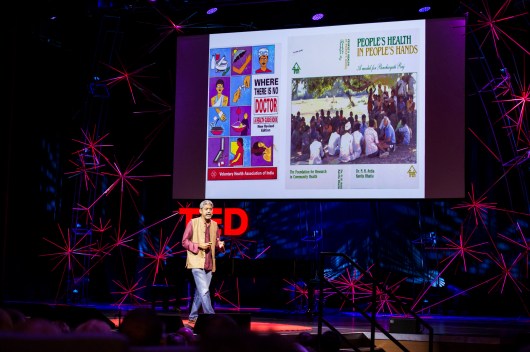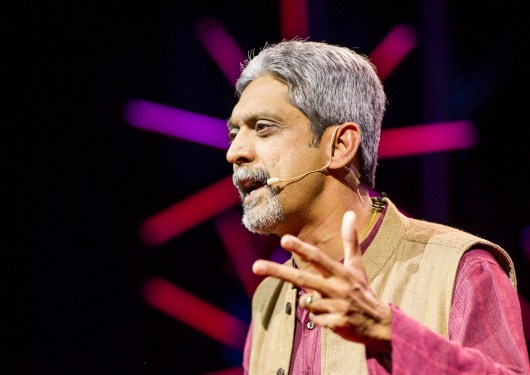A vast gulf in care
Vikram Patel asks us to imagine two men who live in the same town. They have the same education, the same jobs, and everything else the same. Both present at a hospital with chest pains — but one is treated and one is not. Why? The second one has a mental illness.
That is one of the biggest reasons people with mental illness live shorter lives. (In some places, the gap in life expectancy is 20 years.) Of course, there are more direct ways that mental illness can kill you, such as suicide — one of the leading causes of death, even in the poorest countries in the world. The World Health Organization estimates that 400 million to 500 million people are affected by mental illness. The number sounds surprising, he says. “But imagine the diversity of mental health problems… Everyone knows someone with such a condition.”
Those are staggering numbers, but what’s truly worrying, Patel says, is that “the vast majority of these individuals do not receive the care that can vastly improve their lives.” Even in developed countries as many as 50 percent of people don’t receive appropriate care. In developing countries, it’s close to 90 percent.
If you talk to someone with mental illness, or their caregiver, you will find stories of extraordinary pain — and learn that people with mental illness often experience the worst abuses. And some of the worst abuse happens in the place created to cure them, the mental hospital.
Imagining a bridge
There is a gulf, says Patel, between the knowledge we have of how to improve lives, and what we do with it. This is the gulf he is trying to bridge. He trained as a psychiatrist in Britain, surrounded by talented, compassionate, skilled and highly trained colleagues.
Then he went to Zimbabwe.
There he found just about a dozen psychiatrists in the whole country. Most of those serving the needs of those in the city, leaving almost no one for the rural population. In India, the situation was not much better. India should have 150,000 psychiatrists to have the same proportion as the UK, but the number is actually about 3000. It was simply not feasible or affordable to develop quality care. He had to think about different resources to deliver the care.
Then he found some simple books on how to train laypeople to deliver health care — such as, “Where There Is No Doctor” and “People’s Health in People’s Hands.” Those books talk about ways to train people to do all kinds of complex medical tasks. If you could get people to do that, why not mental health care?
Beginning the construction
He reports that there have been some experiments in doing exactly that. He has three examples, all about depression, the most common of mental illnesses.
One trained locals to deliver psychotherapy, leading to 90 percent recovery, compared to about 45 percent in surrounding areas. A second group did a randomized trial of cognitive behavioral therapy, producing 75 percent recovery, compared to about 45 percent. In his own trial they trained ley counselors to deliver psychosocial therapies, and got 70 percent recovery, compared to around 50 percent.
He has an acronym to summarize what’s needed to train these people: SUNDAR.
- Simplify the message
- UNpack the treatment
- Deliver it where people are
- Affordable and available human resources
- Reallocation of specialists to train and supervise
The need for a very large bridge
In the developed world, mental health costs are spiraling out of control, and “a huge chunk of those costs are human resources.” What’s spectacular about SUNDAR, Patel says, is that it is fundamentally empowering. It lets people care for others, and become more invested in their own care as well.
“In order for us to achieve health for all,” says Patel, “we will have to involve all in that particular journey. And in the case of mental health, we will need to involve those affected by mental illness and their caregivers.” As part of that, The Movement for Global Mental Health established as a platform where doctors and those with mental illness can stand together.
In closing, he asks us, “If you have a moment for peace and quiet, spare a moment for the person you know with mental illness, and dare to care for them.”
Photos: James Duncan Davidson


Comments (4)
Pingback: Bridging the Gulf in Care – Sophia Center, LLC
Pingback: How to Treat Depression When Psychiatrists Are Scarce | Badge of Life Canada